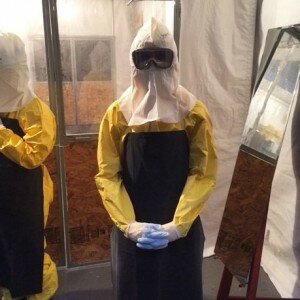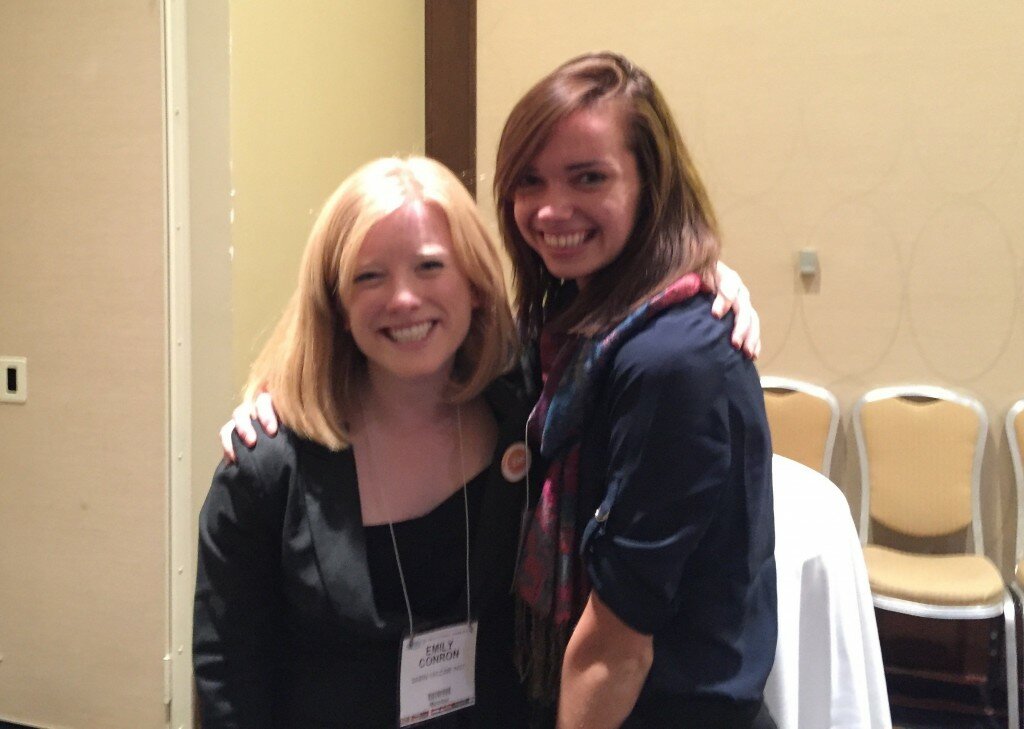By Jessica Ellis
Earlier this month I had was given the incredible opportunity to travel to Philadelphia to attend the American Society of Tropical Medicine and Hygiene (ASTMH) annual conference with the support of a scholarship from the END7 campaign. The conference consisted mostly of symposia and scientific sessions led by international panels of physicians, CEOs, WHO representatives, and other global health experts. During these sessions, while frantically figuring out how to simultaneously listen, take notes, live-tweet and keep track of acronyms to look up later, I was introduced to the vast scope of the global health community.
A significant focus of the symposia was the quantification and logistics behind the process of tracking and verifying the elimination of NTDs. So often in my END7 advocacy experience, we have joyfully announced elimination of a disease in a certain country, but learning about the human efforts and data collection behind disease elimination has changed the way I will treat these declarations. In the first session of Monday morning, a WHO representative gave a briefing about the TAS (Transmission Assessment Survey) that determines when to cease Mass Drug Administrations (MDAs), and I frantically copied down the phrase into my notes. By the second day of ASTMH, I found myself discussing the efficacy and possible alternatives to the TAS system for various west African nations. My total immersion into these passionate, professional discussions of global health policy and practice inspired me to absorb every detail that I could. It was immensely satisfying to realize how much more I could now contribute to my work with END7 on campus armed with my newfound knowledge.
Aside from international policies and paperwork, the more nuanced talks about MDA implementation in different countries, or even different villages, revealed to me another dimension of the NTD control and elimination effort. I learned about the independently financed elimination efforts in Malawi, and the effects of Ebola upon MDAs in Sierra Leone. It was fascinating to hear representatives of NTD programs in West African countries initiate a passionate discussion about the effects of neighboring countries’ disease rates upon those who are close to elimination. These conversations were both heavily researched and fueled by intense national pride from countries nearing NTD elimination.
 The Ebola epidemic was not merely a bullet point at ASTMH. In the lobby of the conference center, a replica Ebola Treatment Unit was set up, which allowed visitors to experience the working conditions of Ebola centers. We were shown how to put on the iconic hazmat suits and personal protective equipment, given several tasks typical of a physician’s two-hour shift, and then spent over thirty minutes being taught how to remove the suit. Removing, or “doffing,” the equipment was an amazingly arduous, stressful regimen even in our completely sanitary, air-conditioned space. The stories told by those who had worked the treatment units — on hand at the replica unit to share their perspective — described understaffed days, inconsistent and inadequate equipment, tropical temperatures, and the constant threat of infection if any part of this procedure was neglected. The men and women who served in these conditions displayed a level of ingenuity and stoicism normally associated with war heroes, and I left greatly humbled and inspired.
The Ebola epidemic was not merely a bullet point at ASTMH. In the lobby of the conference center, a replica Ebola Treatment Unit was set up, which allowed visitors to experience the working conditions of Ebola centers. We were shown how to put on the iconic hazmat suits and personal protective equipment, given several tasks typical of a physician’s two-hour shift, and then spent over thirty minutes being taught how to remove the suit. Removing, or “doffing,” the equipment was an amazingly arduous, stressful regimen even in our completely sanitary, air-conditioned space. The stories told by those who had worked the treatment units — on hand at the replica unit to share their perspective — described understaffed days, inconsistent and inadequate equipment, tropical temperatures, and the constant threat of infection if any part of this procedure was neglected. The men and women who served in these conditions displayed a level of ingenuity and stoicism normally associated with war heroes, and I left greatly humbled and inspired.
There was one session in particular that equipped me for future END7 student advocacy. Two women who bluntly identified themselves as non-scientists led a session entitled “How to Talk about Money When All You Care About is Saving Lives.” Jodie Curtis, an executive at a D.C. lobbying firm that represents ASTMH, spoke first about the numbers that make up the current global and national foreign aid budget. She revealed which nations and which US sectors spend the most on global health, and which health issues receive the most money. The end of her talk detailed “6 Things to Know” about government funding; the theme of which was how to communicate to government officials about a technical or nuanced topic.
This session provided not only quantitative data about government funding that I could share with students, but also recommendations for how to discuss a niche subject such as NTD elimination, which is very applicable to campus advocacy. The catchphrase of the hour was “tell you story, not your data.” This idea of going light on the epidemiology and statistics behind NTDs with a general audience, focusing instead on telling a broader story they can understand and relate to, can be used to reach a student audience on an emotional level. Case studies of the impact of an MDA, or personal anecdotes about a child who recovered from a worm disease and could now attend school, resonate with everybody in a way that statistics sometimes cannot.
Excited by my newly acquired knowledge of TAS and various R&D discoveries, I left the “NTD bubble” I had been immersed in for three days excited to communicate this information to others. In the coming month, I am giving a talk at an event hosted by UT student organization “Advocates for Awareness.” In addition to introductory NTD information, I hope to use my experience at ASTMH to discuss recent developments in global policy support of NTDs, instilling the sense of urgency and excitement around this cause that I took away from my time with the powerful global health community that I met in Philadelphia.
Jessica Ellis is a sophomore at the University of Texas at Austin majoring in biology. She is the president of END7 at UT and is serving on the END7 Student Advisory Board for the 2015-2016 academic year.



